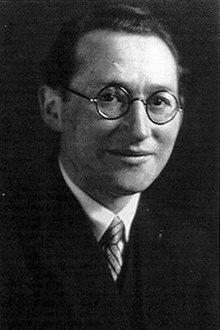Kurt Zadek Lewin
| Kurt Lewin | |
|---|---|
 |
|
| Born |
Kurt Lewin September 9, 1890 Mogilno, County of Mogilno, Province of Poznań, German Empire |
| Died | February 12, 1947 (aged 56) Newtonville, Massachusetts, U.S. |
| Nationality | German |
| Citizenship | Germany, United States |
| Alma mater | University of Berlin |
| Known for | Group dynamics, action research, T-groups |
| Scientific career | |
| Fields | Psychology |
| Institutions |
Institute for Social Research Center for Group Dynamics (MIT) National Training Laboratories Cornell University Duke University |
| Doctoral advisor | Carl Stumpf |
| Doctoral students | Leon Festinger, Roger Barker, Bluma Zeigarnik John Thibaut |
| Other notable students | Rudolf Arnheim, Morton Deutsch |
| Influences | Gestalt psychology, Kurt Koffka, Jacob L. Moreno |
| Influenced | Fritz Perls, Abraham Maslow, David A. Kolb, Eric Trist, Brian J. Mistler |
Kurt Lewin (September 9, 1890 – February 12, 1947) was a German-American psychologist, known as one of the modern pioneers of social, organizational, and applied psychology in the United States. Exiled from the land of his birth, Lewin (/ləˈviːn/ lə-VEEN) made a new life for himself, in which he defined himself and his contributions within three lenses of analysis: applied research, action research, and group communication were his major offerings to the field of communication.
Lewin is often recognized as the "founder of social psychology" and was one of the first to study group dynamics and organizational development. A Review of General Psychology survey, published in 2002, ranked Lewin as the 18th-most cited psychologist of the 20th century.
In 1890, he was born into a Jewish family in Mogilno, County of Mogilno, Province of Poznań, Prussia (modern Poland). It was a small village of about 5,000 people, about 150 of which were Jewish. Lewin received an orthodox Jewish education at home. He was one of four children born into a middle-class family. His father owned a small general store, and the family lived in an apartment above the store. His father, Leopold, owned a farm jointly with his brother Max; however, the farm was legally owned by a Christian because Jews were unable to own farms at the time.
...
Wikipedia
